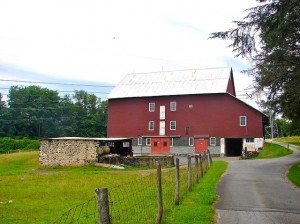With the value of housing still rapidly deflating, homeowners must retain and build value in their property wherever possible. From updating doors and windows to replacing worn out insulation, interiors are getting no shortage of “TLC” from their families. But equally important is the appearance of the exterior home – curb appeal!
The benefits of an asphalt driveway are plenty – smooth, quiet, quick to build, versatile, and environmentally friendly. The smoothness of any road significantly improves fuel efficiency – not the greatest concern for a driveway, but a smooth driveway has a great appearance. More importantly, the smoothness also impacts the longevity of the asphalt. A quiet driveway means not waking up the baby after that late night drive with noise from the tire-pavement interface. If this city were using more asphalt Las Vegas could save a lot of money on noise-reducing barriers! Asphalt is ready to use soon after cooling, whereas other types of paving must be closed off and cured. Not to mention, should the construction ever need to be replaced, asphalt is 100% recyclable. So v
So what is asphalt? Also called blacktop, it’s a mixture of aggregate contains stones, sand, and liquid. Once heated, it becomes liquid and is poured over a gravel base, usually several inches deep. Then it will be compacted across the surface. Once it cools, it’s road-ready.
Still not sure? Consider that over 90% of finished roads in the United States are surfaced with asphalt! With its remarkable waterproofing abilities, it makes a great hard road. The weatherproofing can be further improved with what is called a “chip seal.” This is done when a layer of crushed gravel is applied to the top of fresh asphalt. A drum roller is used to set the seal. The texture improves the appearance and the durability. The dark color means that asphalt will absorb heat, effectively melting snow and ice in the wintertime. Where you see trouble with asphalt is when the gravel base is insufficient. Find out what depth of base for asphalt Las Vegas terrain requires.
A few caveats before diving in to asphalt: time your project appropriately according to the weather. It’s obvious that a crew can’t work in the rain, but also think about the temperature. The colder the temperature, the less time the crew will have to ensure the perfect smoothness of your project. The thicker the laid asphalt, the longer the working time. Also, make sure you’re in compliance with the law regarding road signs Las Vegas requires. Little is more frustrating than projects delayed by red tape!

